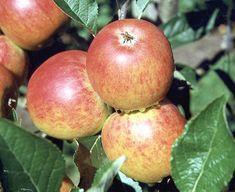
The future of organics in the overall produce offer is still unclear and the organic industry itself must take much of the blame, according to the December issue of the World Apple Report.
The report finds that the industry has a field-of-dreams approach believing that if it grows the product, customers will come. It finds that in many countries, handlers and retailers of organics believe the growth rate has fallen this year to half or less of the 20 per cent rate of recent years.
Report authors at Washington-based Belrose Inc suggest that higher prices and the economic slowdown in many consumer markets might be to blame. "However, perhaps the biggest single impediment is that while many shoppers will occasionally buy organic products, the core of consistent buyers remains small-They buy organic products because of fundamental beliefs about the value of those products to family health and to the broader health of Planet Earth. Most consumers do not have the same strength of convictions," the report states.
Its authors suggest that if the organic sector is to continue to grow, more consumers have to be persuaded that the added value is worth the higher prices. They also warn against spurious claims that organic fruit is better for your health than its conventionally grown counterparts. "One might argue that organic fruits will be even healthier [than conventionally grown], but that is a weak value proposition," the report states.
And with organic supplies set to increase following encouragement by major retailers and modest support from some governments, times could get tougher. "Preliminary analysis suggests that price premiums for organic apples and pears in the US are likely to disappear when those products reach five per cent or more of total production," the report warns.
Consolidation in production and marketing is the likely outcome and small individual producers are expected to be at a disadvantage.
"The organic foods industry has to move from its field-of-dreams approach to one of scientific marketing where it can influence its fate through sound information, visionary plans and effective implementation," the report concludes.






No comments yet